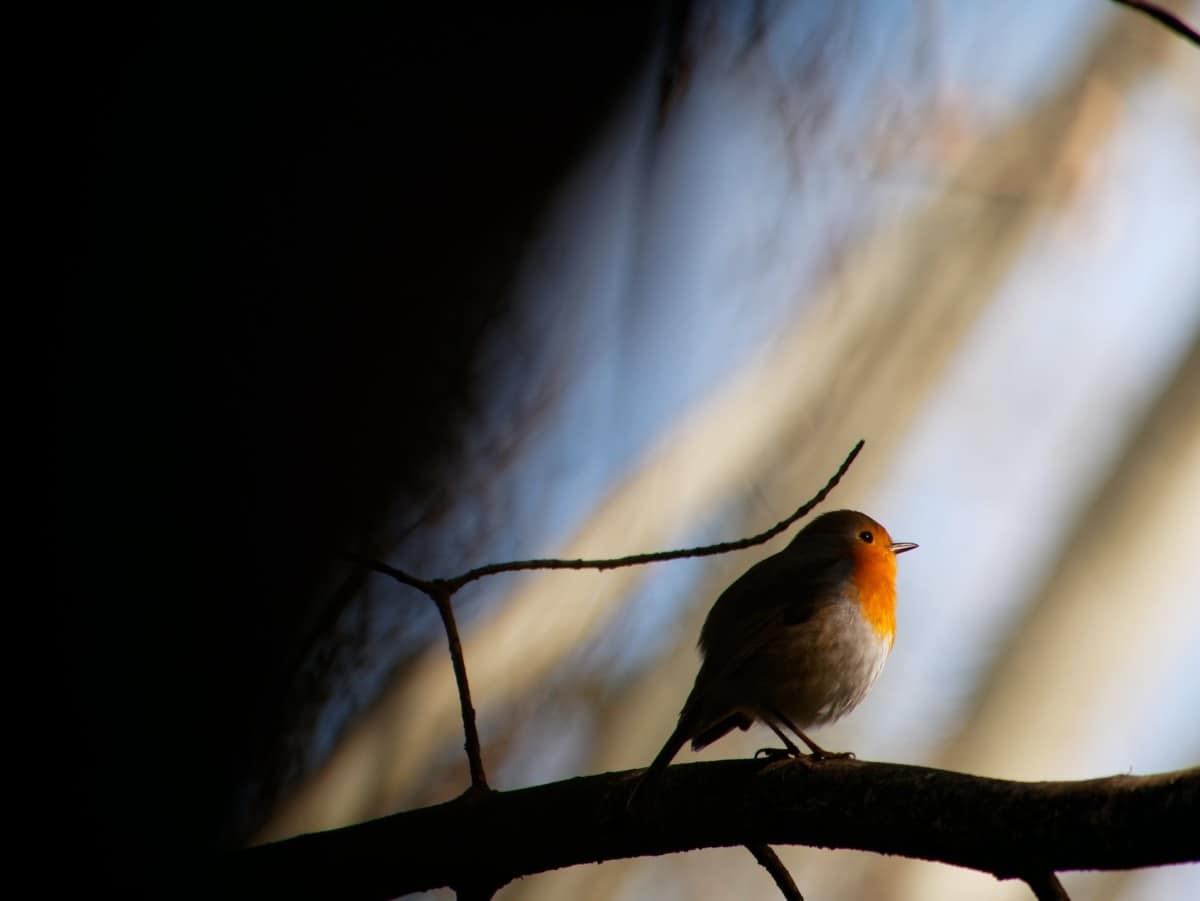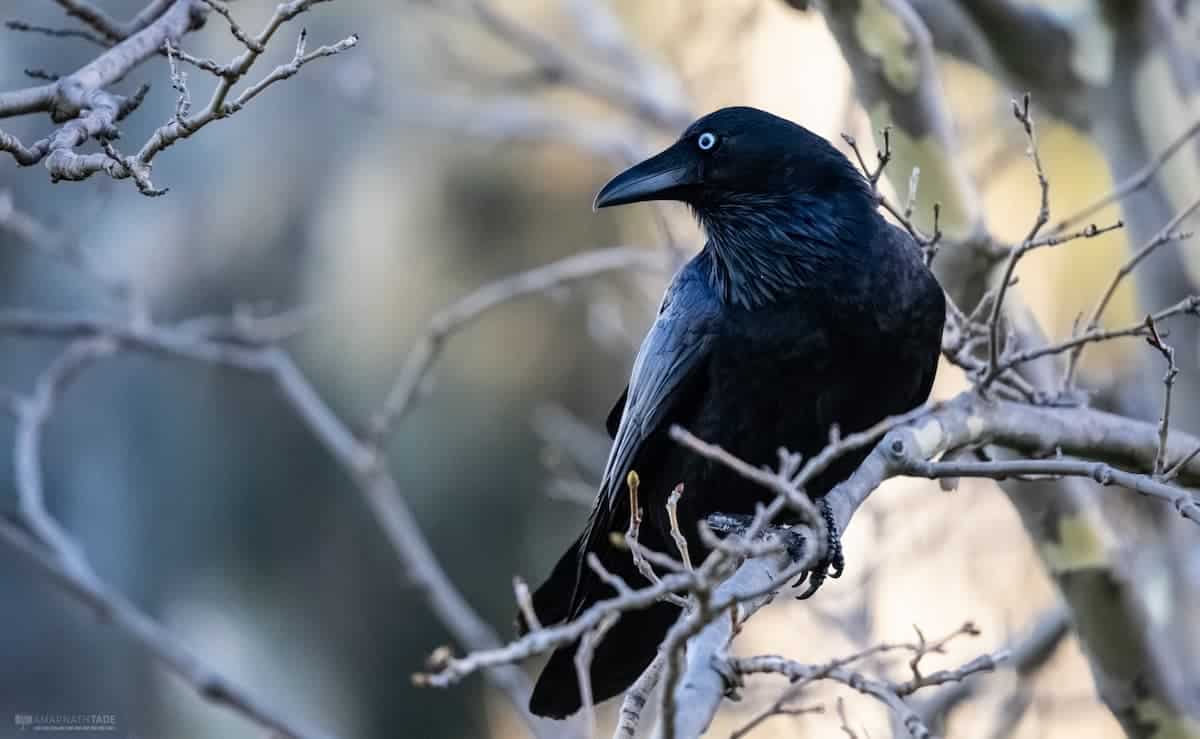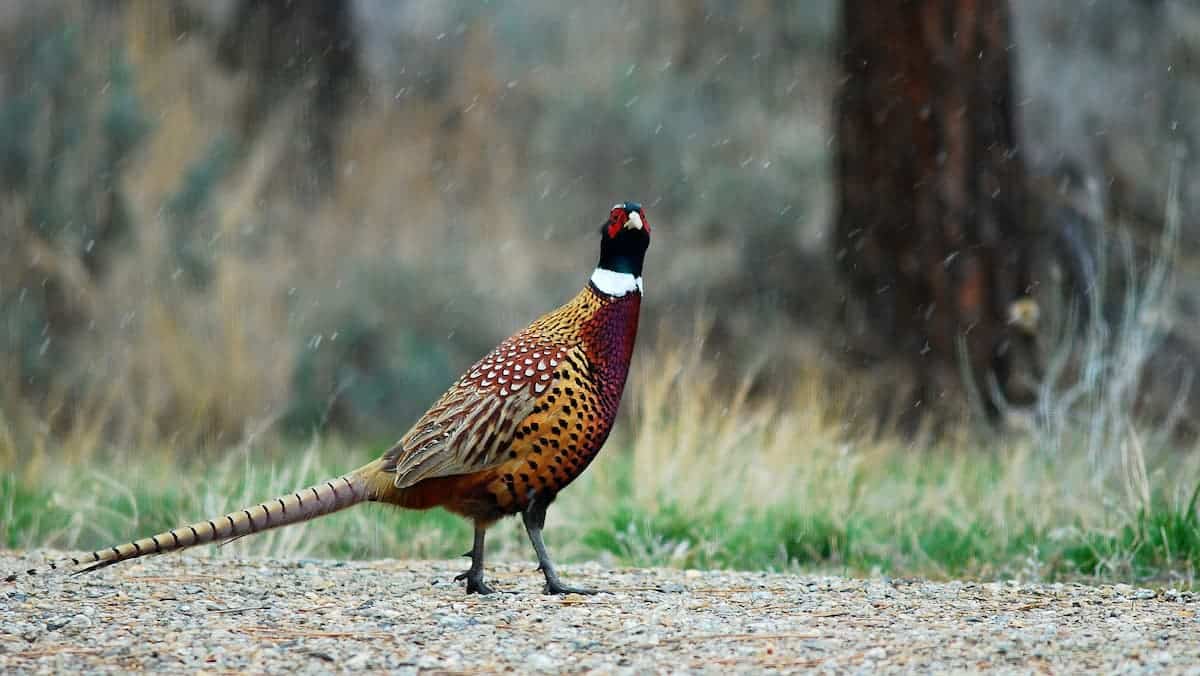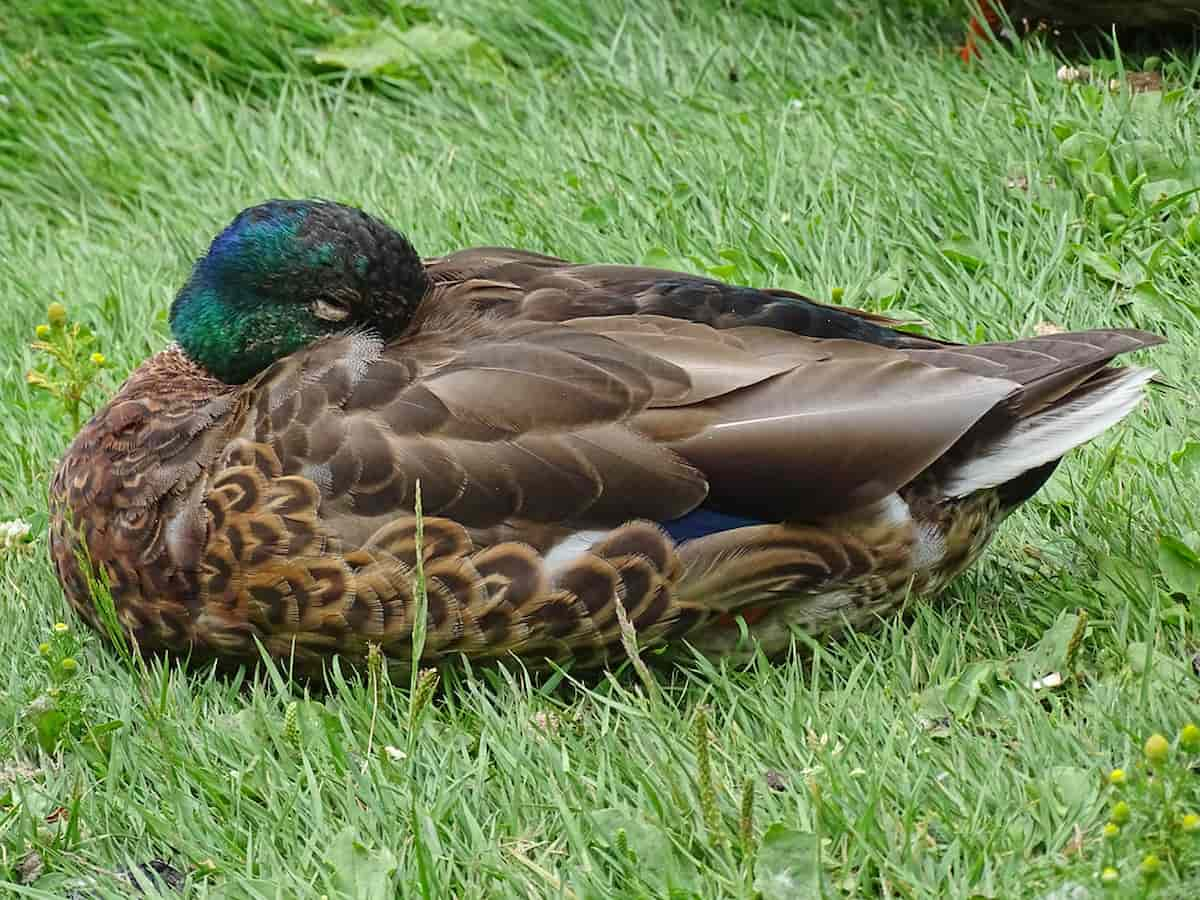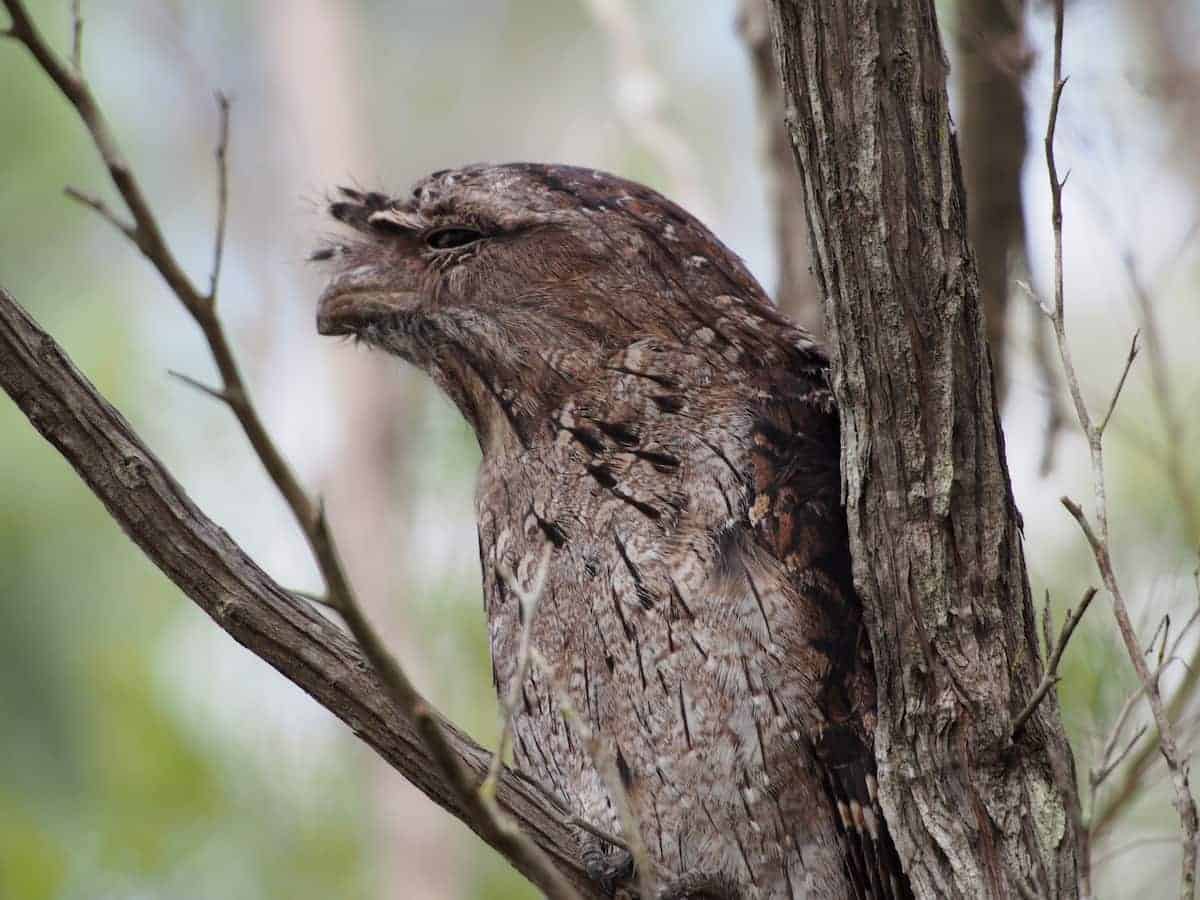Robins spend most of their time on the ground looking for food or perched in trees during the day. But after spotting a robin during their daily activities, you may wonder where they go to sleep at night.
Contrary to popular opinion, robins don’t go to a specific nest or nesting box to get their sleep at night. Instead, they have certain preferred places that they like to visit to get their much-needed rest. Where they choose to go also depend on other factors such as the weather.
Robins are diurnal, which means they are active during the day and they sleep at night. As their eyesight is better during the day, they do their foraging and feeding in the daytime and then find a safe, sheltered place to sleep at night.
But where are these spots exactly? Here is a closer look into where robins go at night to get their sleep.
Where do robins sleep at night?
Robins sleep in shrubbery, dense bushes, and the lower branches of trees as they offer protection from light, weather and predators. Robins do also sleep in man-made nesting boxes at night, but only if they are safe and hidden in trees or bushes.
Not only are the branches dense – usually deterring cats and foxes anyway – but the steady rustle of the branches acts as an alarm bell for the robin, allowing them to fly to safety quickly.
Protection from the elements doesn’t matter so much during the spring and summer months, but when the weather gets colder in the autumn and winter (and after the breeding season is over), it’s common to find small groups of robins taking shelter and huddling to sleep in the same spot.
Robins may also sleep in the eaves of houses, barns, and other disused buildings, on well-sheltered windowsills, within the cracks and crevices of log and rock piles with a bit of moss coverage or dead leaves. They are even known to sleep in hanging baskets, under the bonnets of farm vehicles, and in wellington boots, if you can believe it!
Where do robins sleep in the winter?
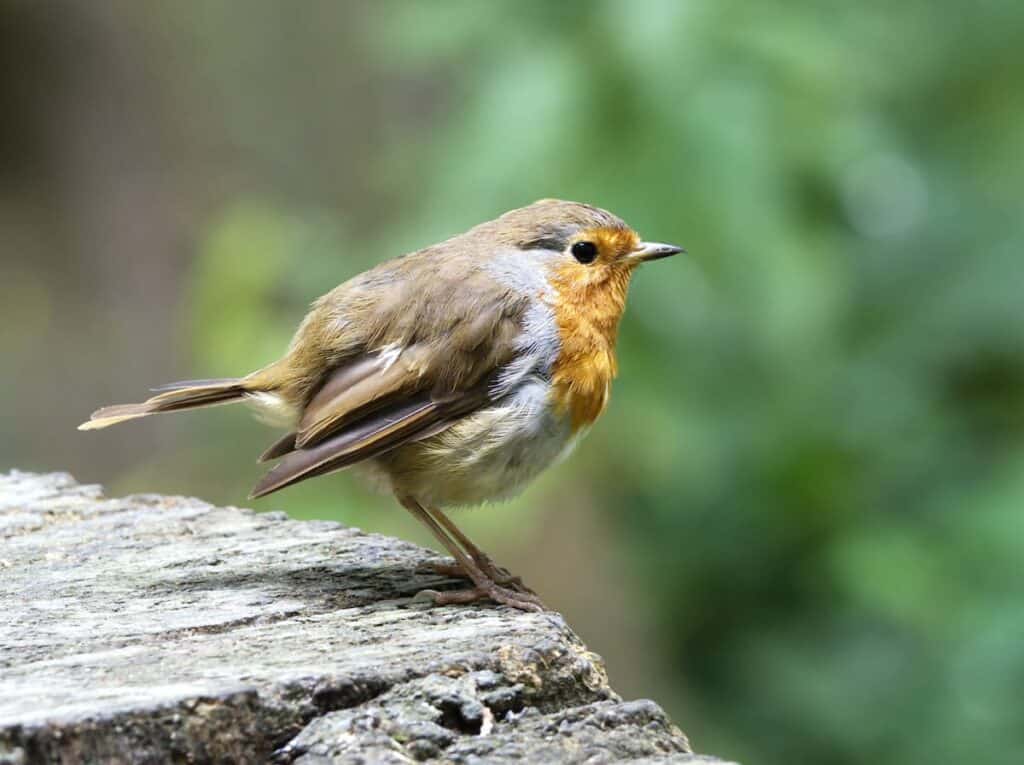
In the winter, robins prefer to sleep in more sheltered and enclosed spaces. Individuals will sleep in small gaps in tree trunks or within building roofs to keep warm. Groups of robins will huddle in their usual spots, i.e. shrubbery and dense bushes, for extra warmth.
It has also been known for robins to stay in groups and huddle together with other robins in order to keep warm during these colder months.
The difference between sleeping and nesting
Nests are solely for the incubation and protection of a robin’s eggs during the breeding season. For this reason, robins don’t sleep in their nests most of the time.
The primary goal of the nest is to provide a warm spot for the eggs to develop whilst keeping them safely away from the prying eyes of predators and egg thieves like snakes, crows, and other predators after robin eggs.
Where do robins nest?
You can find a robin’s nest in or near many of the locations they like to sleep, as we have previously mentioned, such as the lower branches of trees.
Do robins ever sleep in their nests?
If a robin is sitting on their nest, they are incubating the brood and standing guard over them – this could be either the male robin or female robin. However, they will take advantage of the comfort and sleep in the nest with the nestlings.
Typically, one of the mating pair will sleep comfortably in the nest with the eggs, whilst the other will sleep perched on the branches or available space close to the nest until the eggs hatch, the fledglings leave, and the nest is abandoned. They’ll then return to their normal patterns.
Where do baby robins sleep when they leave the nest?
Before baby robins leave the nest, they will eat, sleep, and do just about everything else in the nest. The nest is the safest place for them while they grow and learn to behave like full-grown robins. Once baby robins leave the nest, they will sleep precisely as their parents do.
Can I get robins to sleep in my garden?

To attract more robins to your garden to sleep, you should put out bird feeders. When robins aren’t sleeping (or incubating eggs), they are looking for whatever food they can get their beaks on. So if you make that job easier for them, they may hang around your garden after they’re done to get some sleep.
Robins are happy to eat worms, small invertebrates, fruits and berries, and seeds, so stock your feeder with a mixture of foods, and they should come to your garden. They’re not very fussy eaters!
You could also try turning over the soil in your flowerbeds every so often in the warmer months – the earthworms will tempt robins and other small birds in for a snack.
Another top tip is to try growing some denser shrubs and bushes in areas of your garden. Robins will take advantage of these leafy areas to sleep in once they are done eating from your strategically placed feeders. If you can also deter cats and foxes from your garden by efficiently fencing them off, all the better!
Do Robins Sleep in The Same Place Every Night?
No, robins don’t sleep in the same place every night; however, they don’t wander far from where they have been during the day (Robins can only travel 100-200 miles a day so won’t be a different country but maybe a different county). Robins are unlikely to choose a spot they are completely unfamiliar with and can remain in the same spot for a few days but generally, they won’t stay longer than that.
Conclusion
Robins aren’t that fussy when it comes to getting their sleep. Anywhere safely tucked away from predators and with enough protection from the elements is good enough.
Nesting and sleeping are also two very different things, and you won’t find robins sleeping in nests year-round if that is what you’re looking for. They will only ever sleep in roosts during the nesting season early in the year (around March time).
If you want more robins sleeping and thriving in or near your garden, plant some denser bushes and trees, build a nicely secluded bird box, set up a feeder, and watch those hungry and sleepy robins flock to your garden; year-round!
